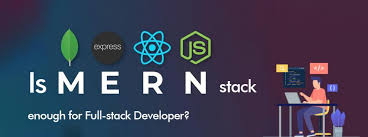The MERN stack—MongoDB, Express.js, React, and Node.js—has emerged as one of the most popular full-stack development solutions for Small and Medium-sized Enterprises (SMEs) seeking agile, scalable, and budget-friendly digital solutions. Its JavaScript-only ecosystem enables seamless integration between frontend and backend, reducing development time and costs. This paper examines the MERN stack’s benefits, its relevance to SME growth strategies, detailed use cases across industries, and the strategic role of IAS-Research.com and KeenComputer.com in enabling successful adoption.
Leveraging the MERN Stack for SMEs: A Strategic Approach to Agile, Scalable, and Cost-Effective Web Development
Abstract
The MERN stack—MongoDB, Express.js, React, and Node.js—has emerged as one of the most popular full-stack development solutions for Small and Medium-sized Enterprises (SMEs) seeking agile, scalable, and budget-friendly digital solutions. Its JavaScript-only ecosystem enables seamless integration between frontend and backend, reducing development time and costs. This paper examines the MERN stack’s benefits, its relevance to SME growth strategies, detailed use cases across industries, and the strategic role of IAS-Research.com and KeenComputer.com in enabling successful adoption.
1. Introduction
SMEs today operate in a business climate characterized by:
- Fast-changing market demands
- Budget constraints
- Intense competition
- The need for rapid innovation
To remain competitive, SMEs must leverage full-stack solutions that:
- Support quick development cycles
- Scale with business growth
- Deliver real-time performance
- Integrate with modern cloud and AI services
The MERN stack addresses these needs directly by providing:
- A unified programming language (JavaScript) across the entire application lifecycle.
- Open-source flexibility with no licensing costs.
- High scalability for growing data and user demands.
- A mature ecosystem supported by a global developer community.
2. Technical Overview of the MERN Stack
- MongoDB: A NoSQL database offering schema flexibility, ideal for handling evolving data models.
- Express.js: A lightweight backend web application framework for building RESTful APIs.
- React: A component-based frontend library for building dynamic user interfaces.
- Node.js: A runtime environment enabling JavaScript to be used server-side, optimized for handling concurrent requests.
Together, these components enable the creation of Single Page Applications (SPAs), real-time dashboards, e-commerce platforms, and IoT control systems with minimal friction between development stages.
3. Key Benefits for SMEs
3.1 Faster Development Cycles
Unified JavaScript reduces context-switching for developers, enabling faster iterations and shorter time-to-market.
3.2 Scalability
MongoDB’s horizontal scaling and Node.js’s event-driven architecture ensure seamless growth as data and traffic increase.
3.3 Cost Efficiency
Being entirely open source, MERN reduces licensing costs and leverages community-driven innovation.
3.4 High Performance
Node.js manages thousands of concurrent connections efficiently, while MongoDB offers optimized read/write operations.
3.5 Real-Time Capabilities
Perfect for apps requiring live updates—such as messaging systems, collaborative workspaces, and IoT monitoring.
3.6 Rich Ecosystem
A strong developer community provides abundant resources, libraries, and tools, reducing implementation risks.
4. Expanded SME Use Cases and Partner Contributions
|
Use Case |
Description |
IAS-Research.com Role |
KeenComputer.com Role |
|---|---|---|---|
|
E-commerce Platforms with Real-Time Inventory |
Dynamic catalogs, payment systems, live stock updates. |
Designs scalable cloud-native architectures, integrates AI-driven recommendation engines. |
Builds SEO-optimized, mobile-friendly storefronts with marketing automation. |
|
Interactive Business Intelligence Dashboards |
Real-time analytics for sales, KPIs, and operations. |
Configures backend pipelines, integrates predictive analytics models. |
Designs intuitive dashboards tailored for non-technical users. |
|
Content Management Systems (CMS) |
Flexible publishing and content delivery. |
Implements scalable API architecture and advanced search indexing. |
Develops custom themes and integrates lead generation tools. |
|
Social Media & Collaboration Platforms |
Chat, media sharing, live interactions. |
Ensures secure communications and manages high concurrency. |
Adds engagement analytics, gamification, and branding features. |
|
Healthcare & Telemedicine |
HIPAA-compliant patient portals and scheduling. |
Builds secure APIs, integrates IoT medical devices, enables health analytics. |
Designs accessible, multilingual interfaces for patient engagement. |
|
IoT Platforms & Device Management |
Real-time device monitoring and control. |
Implements event-driven systems and data streaming pipelines. |
Creates responsive control panels optimized for mobile and low-bandwidth use. |
|
Workflow Automation & ERP Modules |
Automates HR, finance, and supply chain processes. |
Integrates MERN with legacy ERP and secure API layers. |
Creates adaptable, user-friendly interfaces for rapid adoption. |
5. Strategic Integration Considerations for SMEs
- Cloud Deployment: MERN integrates seamlessly with AWS, Azure, and Google Cloud.
- Security Compliance: Role-based access, API authentication, and data encryption must be standard.
- DevOps Practices: Continuous Integration/Continuous Deployment (CI/CD) pipelines accelerate release cycles.
- Future-Proofing: MERN can be extended with AI/ML capabilities for smarter applications.
6. How IAS-Research.com and KeenComputer.com Empower SMEs
IAS-Research.com
- Architecture & System Design: Creates robust, high-availability MERN environments.
- AI/ML Integration: Embeds machine learning capabilities for personalization, analytics, and automation.
- Performance Optimization: Fine-tunes applications for speed, scalability, and reliability.
KeenComputer.com
- Custom Development: Builds tailored MERN-based applications aligned with SME goals.
- Digital Marketing Integration: Embeds SEO, analytics, and conversion optimization into the application layer.
- User Experience Design: Focuses on responsive, accessible, and engaging interfaces.
Together, they offer end-to-end MERN adoption support—from strategic planning and development to deployment and market optimization.
7. Conclusion
For SMEs aiming to stay competitive, the MERN stack represents a cost-effective, scalable, and future-proof solution. Its unified JavaScript environment streamlines development, while its open-source nature makes it financially accessible. By partnering with IAS-Research.com and KeenComputer.com, SMEs gain not only the technology but also the strategic, design, and operational expertise needed to turn a web application into a sustainable growth engine.
References
[1] Nikunj Balar, What Makes MERN Stack the Best Choice for Full-Stack Development?
[2] DM Websoft, Future Predictions for MERN Stack Development
[3] SynapseIndia, Insights About MERN Stack Development Services
[4] Bachasoftware, MERN Stack Development Guidelines
[5] Invedus, Why Choose MERN Stack Development?
[6] Cmarix, Benefits of Hiring MERN Stack Developers
[7] Bytes Technolab, Reasons to Choose MERN Stack for Your Next Project
